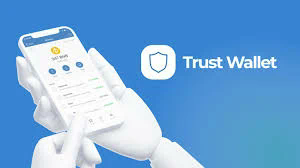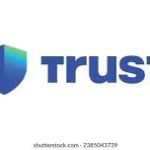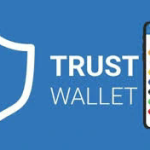Does Binance Own Trust Wallet? A Deep Dive into the Relationship and Implications
### Introduction: Understanding the Crypto Ecosystem
In the ever-evolving landscape of cryptocurrency, the relationships between various entities can often shape the future of the digital asset space. One such relationship that has garnered significant attention is between Binance, one of the largest cryptocurrency exchanges globally, and Trust Wallet, a popular mobile cryptocurrency wallet. Many users and investors frequently ask, “Does Binance own Trust Wallet?” This article aims to delve deep into this relationship, exploring the ownership, implications, and what it means for the crypto community at large.
### The Basics: What is Binance?
Founded in 2017, Binance quickly became one of the leading cryptocurrency exchanges in the world. It offers a platform for trading a wide variety of digital assets with high liquidity, extensive trading pairs, and numerous features. Binance has garnered a massive user base worldwide due to its innovative tools, competitive trading fees, and comprehensive security measures. Many users rely on Binance for trading, investing, and navigating the ever-growing universe of cryptocurrencies.
### What is Trust Wallet?
Trust Wallet is a decentralized, open-source cryptocurrency wallet that allows users to store various digital assets securely. Acquired by Binance in 2018, Trust Wallet is designed to put users in control of their private keys and funds. Unlike centralized exchanges where user assets may be held by the platform, Trust Wallet empowers individuals to manage their cryptocurrencies directly. The wallet supports various tokens and cryptocurrencies, including popular assets like Bitcoin, Ethereum, and ERC-20 tokens.
### The Ownership Question: Binance and Trust Wallet
To answer the central question: yes, Binance does own Trust Wallet. The acquisition took place in July 2018 and was part of Binance’s broader strategy to create a more comprehensive ecosystem in the cryptocurrency space. By acquiring Trust Wallet, Binance aimed to offer users a seamless experience, integrating the security and control of a decentralized wallet with the liquidity and trading capabilities of its exchange.
### The Strategic Importance of Trust Wallet to Binance
#### Expanding User Engagement
By owning Trust Wallet, Binance has significantly boosted user engagement. The wallet allows Binance users to store their assets securely, offering a bridge between trading on the exchange and holding digital assets independently. This integration encourages users to maintain their investment ecosystem within the Binance platform, thereby fostering loyalty and reducing the likelihood of users migrating to competing services.
#### Enhancing Decentralization
Decentralization is a core principle of cryptocurrency. Through the acquisition of Trust Wallet, Binance has been able to further its commitment to decentralization. Users are empowered to hold their private keys, enhancing their security and control over their assets. This move aligns with the overall ethos of cryptocurrency, where users are encouraged to take responsibility for their funds.
#### Developing a Comprehensive Ecosystem
The Binance ecosystem has expanded significantly since the acquisition of Trust Wallet. By integrating Trust Wallet into its suite of services, Binance can attract users not only interested in trading but also those looking for secure asset storage solutions. Trust Wallet supports decentralized applications (dApps) and is built to interact with various blockchain networks, making it an essential component of Binance’s strategy to become an all-encompassing crypto hub.
### Trust Wallet’s Features: A Deeper Insight
#### Security and Control
One of the standout features of Trust Wallet is its commitment to security. The wallet allows users to manage their private keys locally, meaning that users always maintain control of their stored assets. Trust Wallet implements several security measures, including biometric authentication and encryption, ensuring that users can securely access their funds.
#### User-Friendly Interface
Trust Wallet is designed with user experience in mind. The wallet features a simple and intuitive interface that caters to both novice and experienced cryptocurrency users. With a few taps, users can send and receive cryptocurrencies, swap assets, and access decentralized finance (DeFi) applications, making it an appealing option for a broad audience.
#### Support for Multiple Assets
Trust Wallet stands out with its ability to support a wide range of cryptocurrencies and tokens. The wallet allows users to store Bitcoin, Ethereum, Binance Coin, and thousands of other digital assets. Its compatibility with Ethereum-based tokens (ERC-20 and ERC-721) further enhances its utility in the ever-expanding world of tokens, especially within the DeFi and non-fungible token (NFT) sectors.

### The Future of Trust Wallet Under Binance’s Ownership
While Trust Wallet has solidified its position as a leading wallet in the crypto space, its future development will likely be heavily influenced by Binance’s overarching strategies. This might involve:
#### Innovations and Integrations
As Binance continues to expand its offerings, users can expect ongoing innovations and integrations within Trust Wallet. From enhancing security protocols to introducing new features that simplify access to the DeFi world, there will likely be a focus on keeping Trust Wallet at the forefront of the crypto wallet sector.
#### Regulatory Considerations
With the rapid evolution of the cryptocurrency space, regulatory frameworks are becoming increasingly stringent. As Binance navigates various global regulations, Trust Wallet may be required to adapt accordingly. Balancing compliance while maintaining decentralization and user control will be a crucial challenge for the wallet moving forward.
#### Competing in a Crowded Market
As the cryptocurrency wallet market continues to grow, Trust Wallet will face increased competition from both centralized and decentralized wallets. Staying relevant and appealing to users will require continuous development and adaptation to the market’s changing landscape.
### Implications for Users: What This Means for You
#### Increased Trust and Confidence
For users of Trust Wallet, Binance’s ownership can instill greater trust and confidence due to the exchange’s established reputation and security measures. Users can benefit from better support, community engagement, and innovative features that arise from a well-resourced company backing the wallet.
#### Pooling Resources for Development
With Binance’s resources, Trust Wallet can focus on enhancing its features and improving user experience. Users can anticipate regular updates, new functionalities, and community-driven initiatives, allowing them to enjoy a constantly evolving wallet.
#### Integrated Ecosystem Benefits
As part of the Binance ecosystem, Trust Wallet users may benefit from efficient transactions between the wallet and the exchange. Additional features, such as instant swaps or discounts on trading fees, may also emerge, providing users with more incentives to engage with both platforms.
### Conclusion: The Bigger Picture
The question of whether Binance owns Trust Wallet is easily answered with a yes, but what lies beneath this ownership is much deeper. The relationship represents a strategic move for both entities, where Binance aims to create a more integrated and comprehensive cryptocurrency ecosystem while Trust Wallet remains committed to serving users with a focus on security and decentralization.
As the cryptocurrency landscape continues to evolve, the implications of this ownership will play a significant role in shaping the future experiences of users, creating opportunities for innovation, enhanced security, and a broader adoption of digital assets. It is essential for users to stay informed about these dynamics as they navigate their journeys in the ever-changing world of cryptocurrency.


